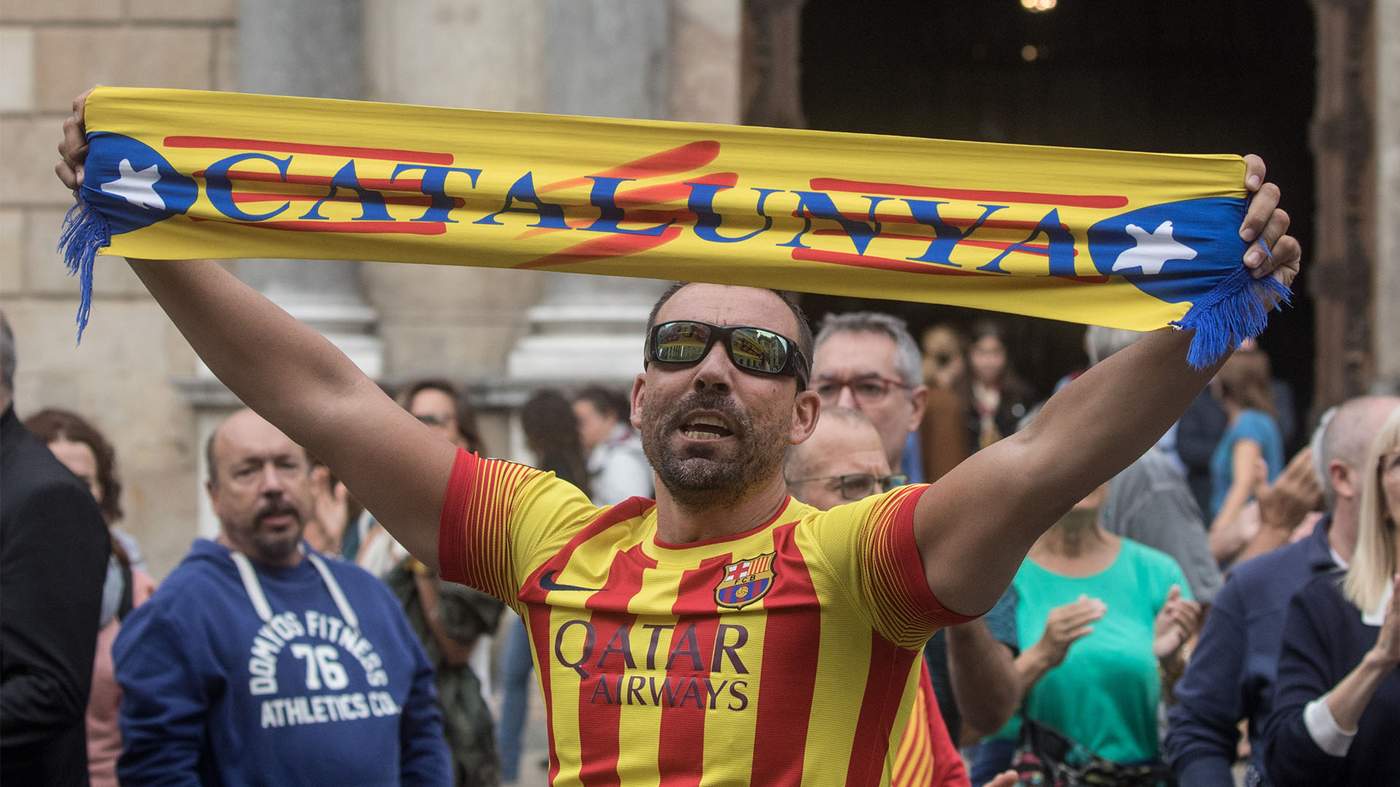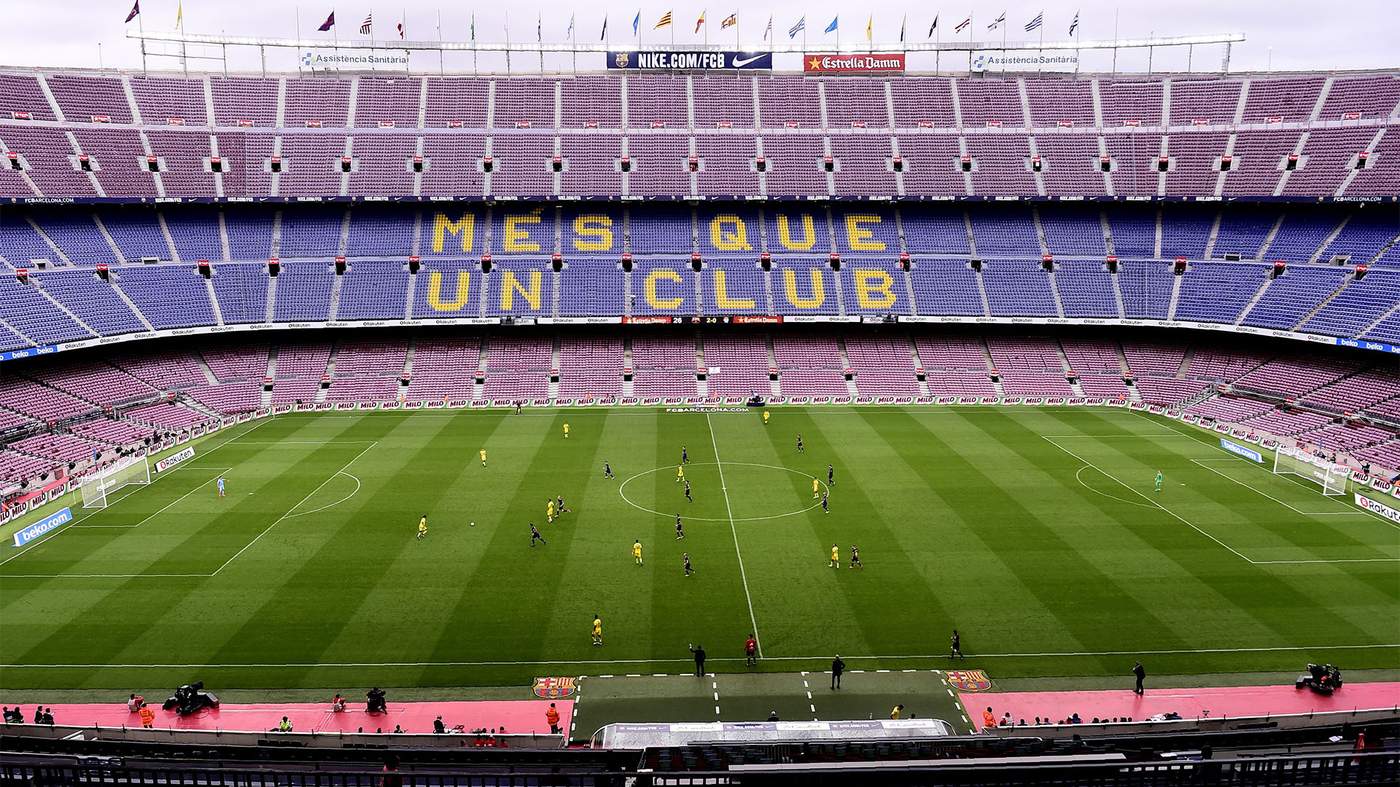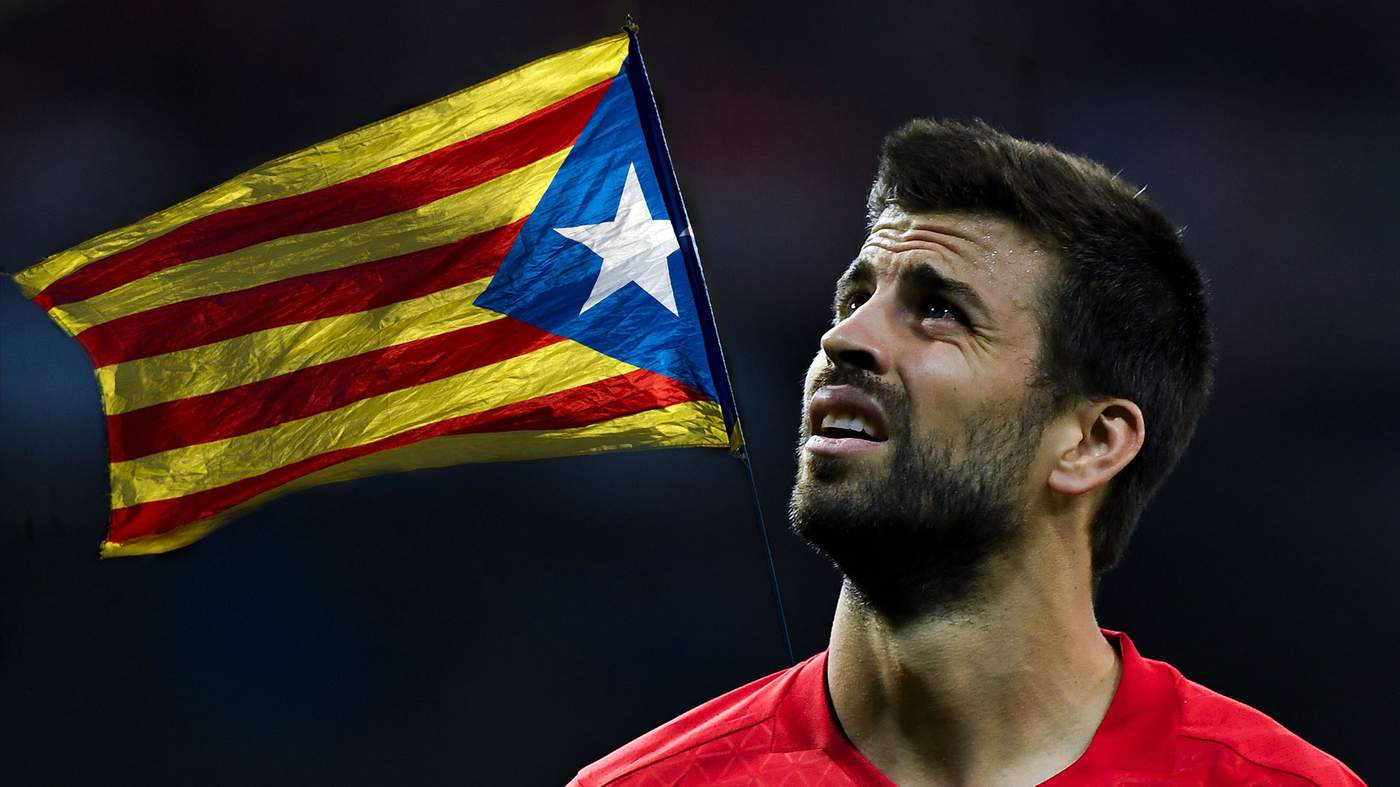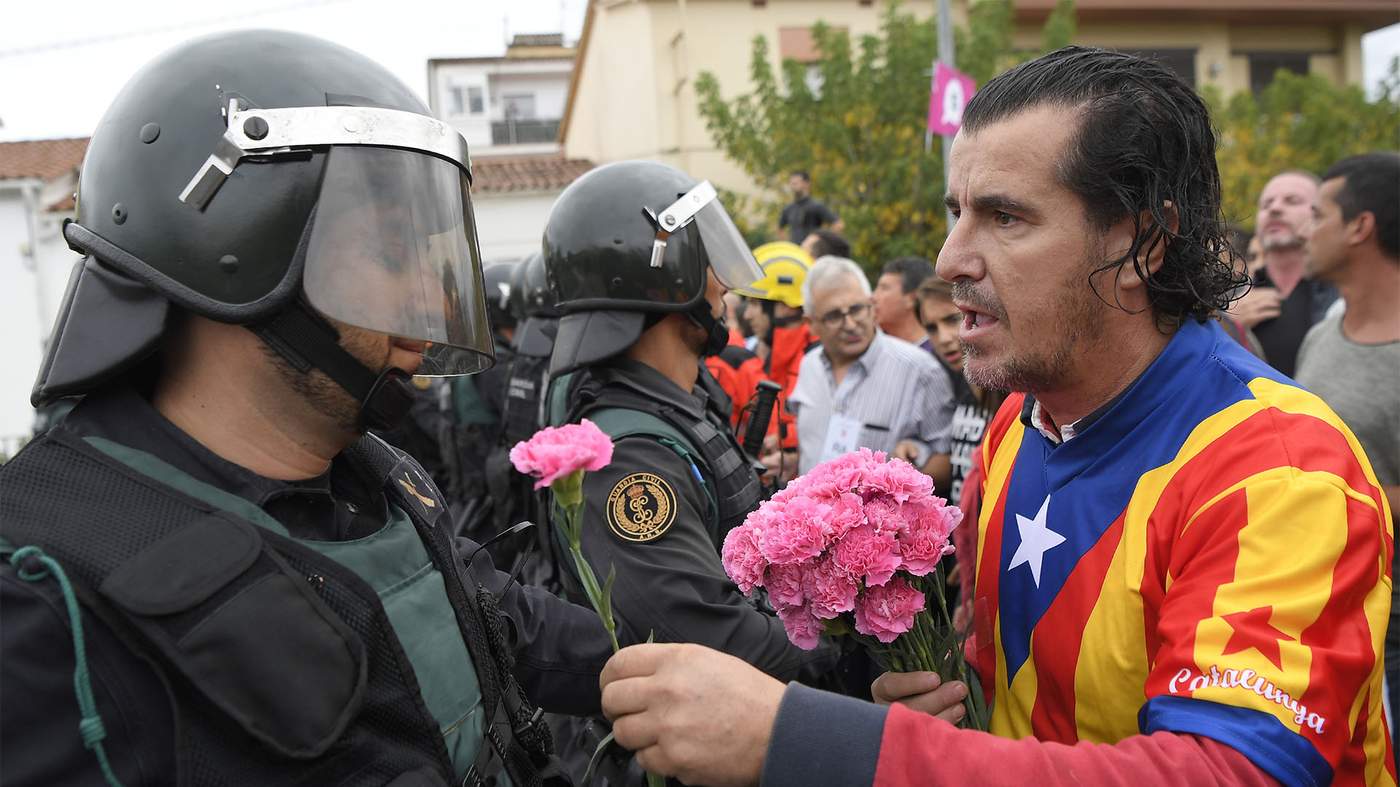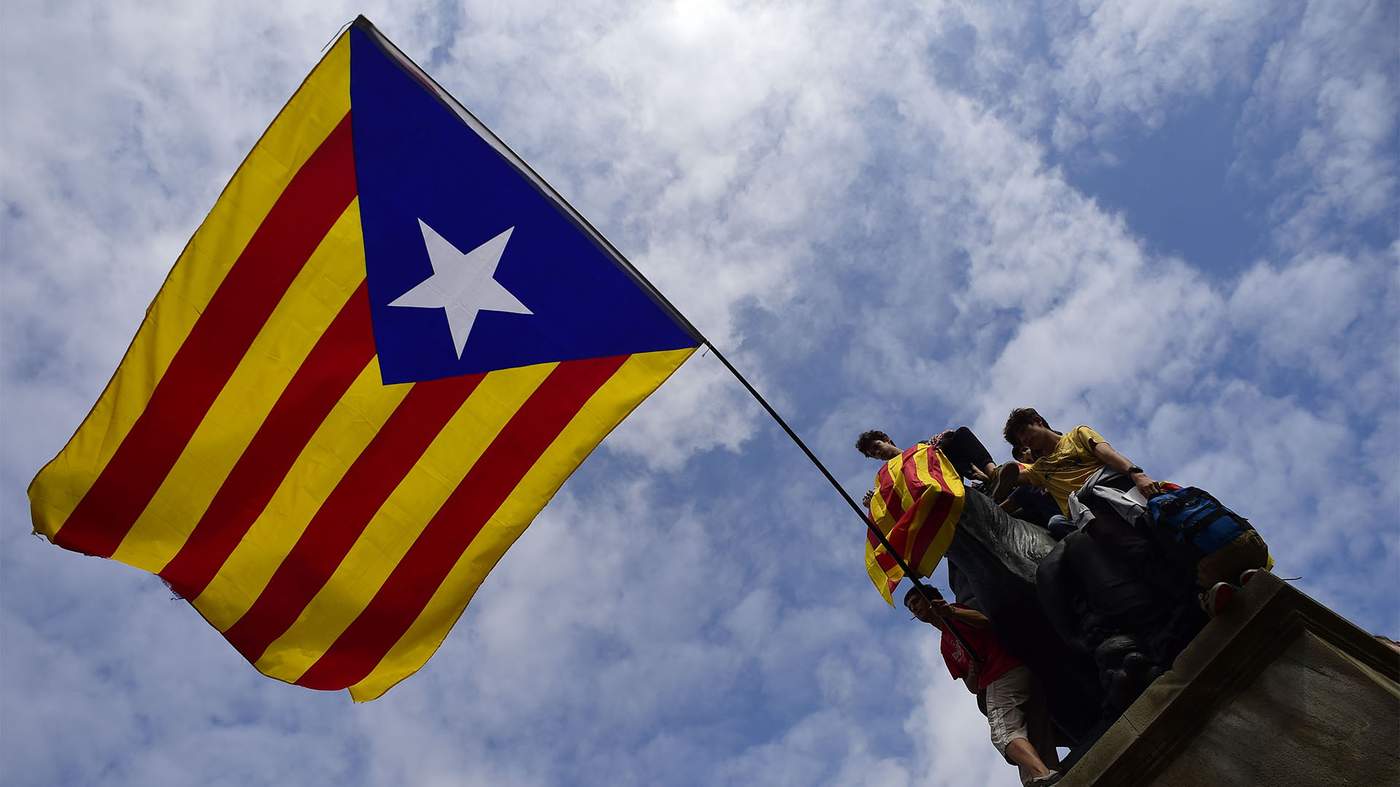Don’t mix politics and sport. It is a phrase that is often mentioned in Spain.
In Barcelona’s case, however, it is impossible to separate the two and events on Sunday showed that the Catalan club will always be about more than only football.
Brutal violence by the Spanish police in Catalunya left over 800 people injured as officials used extreme force to try to prevent citizens from voting in an independence ballot which was considered illegal by the Madrid government.
And football was at the centre of the story as Barcelona held an emergency board meeting to decide whether to play their La Liga fixture at home to Las Palmas at Camp Nou in the afternoon.
Barca decided to postpone the match, but were told by Spain’s Professional Football League (LFP) that they would lose six points - three for forfeiting the game and another three as punishment for refusal to play - if it did not go ahead.
Many of the players were keen to avoid that scenario and Barca therefore took the decision to play behind closed doors. Safety was used as the excuse, but really it was a political gesture by the Catalan club and one which brought criticism from some sectors of the media and also fans waiting outside on the streets around the stadium.
Images of Lionel Messi et al in an empty Camp Nou were seen all around the world and on television, with the match broadcast in 178 countries. That, Barca decided, would give much more exposure to the Catalan cause.
Barca have not come out in favour of Catalan independence, but the club has supported citizens’ right to a vote for self-determination and that has caused some supporters outside of Catalunya to feel disconnected.
But it is nothing new. “Barcelona are a highly political club,” Arsenal boss Arsene Wenger said on Sunday. And he is right. The team’s ‘Mes que un club’ motto is evidence of that.
Catalans have long considered themselves different from the rest of Spain and calls for independence from a sector of the society go way back centuries. All the way to 1714, in fact, when the nation lost its status as a principality and a political power in defeat to the Spanish forces in the Siege of Barcelona.
Later, during the dictatorship of Francisco Franco, the Catalan language was banned. So too were their ‘Senyera’ flags. And one of the only places where Catalans could really express themselves without fear of arrest was watching Barca games at Camp Nou.
Following Franco’s death in 1975, Catalans were brutally beaten in the streets by police during the transition to democracy and over 40 years on, those terrible images were echoed on Sunday.
“In the Franco era, we couldn’t defend our ideas,” Barca defender Gerard Pique said on Sunday as he fought off the tears in the mixed zone after Barca’s 3-0 win over Las Palmas.
“I am and I feel Catalan. I’m proud of the people and their behaviour,” he added. “There was no aggression [from the Catalan people], but the Police and the Guardia Civil have come here and acted as they have.
"They [Spain’s ruling Partido Popular government] have made the people of Spain believe that the Catalans are the bad guys. But it's not like that. We just want to vote."
And in the end, they did vote, Pique included. The results were posted late on Sunday by the Catalan government, with over 90 per cent in favour of independence. Now, the process towards an independent Catalunya is set to continue - and the Blaugrana are sure to be a part of that.
Barcelona have long been seen as a de facto national team for Catalunya by many and it is impossible for the club to stay out of the political arena.
The Camp Nou is more than a football forum and it is a place where pro-independence fans have voiced their support for secession from Spain in recent years, chanting “indepèndencia” in the 17th minute of every home match to mark the 1714 battle.
Football still comes first, of course, but whatever the motives of the Barcelona board, and those change depending on the president at the time, sport and politics will always be inextricably linked at Camp Nou. That is why Barca are ‘more than a club’. They always have been and they always will be.



